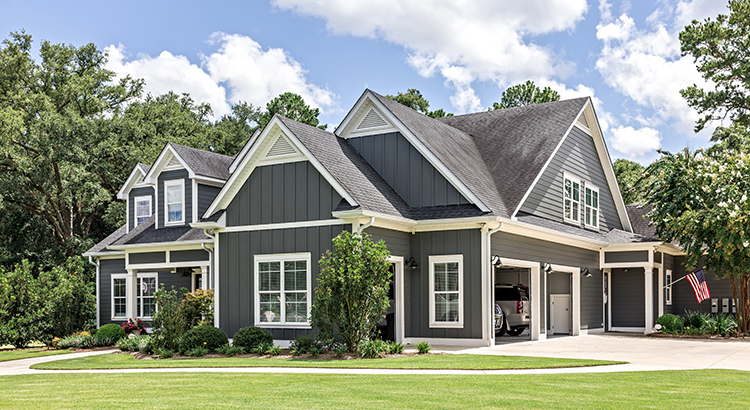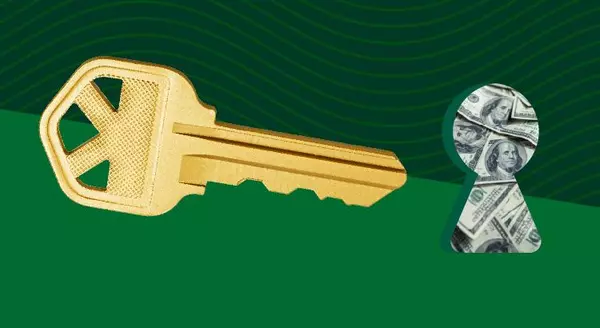
Saving for a Down Payment? Here’s What You Need To Know.
Saving for a Down Payment? Here’s What You Need To Know. If you're planning to buy your first home, then you're probably focused on saving for all the costs involved in such a big purchase. One of the expenses that may be at the top of your mind is your down payment. If you’re intimidated by how much you need to save for that, it may be because you believe you must put 20% down. That doesn’t necessarily have to be the case. As the National Association of Realtors (NAR) notes: “One of the biggest misconceptions among housing consumers is what the typical down payment is and what amount is needed to enter homeownership.” And a recent Freddie Mac survey finds: “. . . nearly a third of prospective homebuyers think they need a down payment of 20% or more to buy a home. This myth remains one of the largest perceived barriers to achieving homeownership.” Here’s the good news. Unless specified by your loan type or lender, it’s typically not required to put 20% down. This means you could be closer to your homebuying dream than you realize. According to NAR, the median down payment hasn’t been over 20% since 2005. In fact, the median down payment for all homebuyers today is only 14%. And it’s even lower for first-time homebuyers at just 6% (see graph below): What does this mean for you? It means you may not need to save as much as you originally thought. Learn About Options That Can Help You Toward Your Goal And it’s not just how much you need for your down payment that isn’t clear. There are also misconceptions about down payment assistance programs. For starters, many people believe there’s only assistance available for first-time homebuyers. While first-time buyers have many options to explore, repeat buyers have some, too. According to Down Payment Resource, there are over 2,000 homebuyer assistance programs in the U.S., and the majority are intended to help with down payments. That same resource goes on to say: “You don’t have to be a first-time buyer. Over 38% of all programs are for repeat homebuyers who have owned a home in the last 3 years.” Plus, there are even loan types, like FHA loans with down payments as low as 3.5% as well as options like VA loans and USDA loans with no down payment requirements for qualified applicants. If you’re interested in learning more about down payment assistance programs, information is available through sites like Down Payment Resource. Then, partner with a trusted lender to learn what you qualify for on your homebuying journey. Bottom Line Remember, a 20% down payment isn’t always required. If you want to purchase a home this year, let’s connect to start the conversation about your homebuying goals. by Tom Ciccarone Keller Williams Greater Brunswick
![How Owning a Home Grows Your Wealth with Time [INFOGRAPHIC],Tom Ciccarone Keller Williams Greater Brunswick](https://files.keepingcurrentmatters.com/content/images/20230615/How-Owning-a-Home-Grows-Your-Wealth-with-Time-KCM-Share.png)
How Owning a Home Grows Your Wealth with Time [INFOGRAPHIC]
How Owning a Home Grows Your Wealth with Time [INFOGRAPHIC] Some Highlights If you’re thinking of buying a home this year, be sure to factor in the long-term benefits of homeownership. Over time, homeownership allows you to build equity. On average, nationwide home prices appreciated by 290.2% over the last 32 years. That means your net worth can grow significantly in the long term when you own a home. Let’s connect so you can start your homebuying journey today. by Tom Ciccarone Keller Williams Greater Brunswick

Why Buying or Selling a Home Helps the Economy and Your Community
Why Buying or Selling a Home Helps the Economy and Your Community If you're thinking about buying or selling a house, it's important to know that it doesn't just affect your life, but also your community. The National Association of Realtors (NAR) releases a report every year to show how much economic activity is generated by home sales. The chart below illustrates that impact: As the visual shows, when a house is sold, it can make a big difference in the local economy. The impact comes largely from the workers required to build, update, and buy and sell homes. Robert Dietz, Chief Economist at the National Association of Home Builders (NAHB), explains how the housing industry adds jobs to a community: “The economic impact means housing is a significant job creator. In fact, for every single-family home built, enough economic activity is generated to sustain three full-time jobs for a year, per NAHB research. . . . And one job for every $100,000 in remodeling spending.” Housing being a major job creator makes sense when you consider there are many different industries involved in the process. A recent article from Fortune notes housing activity could have a more robust impact than you think due to the many ways it’s tied to the economy: “Housing has three direct linkages to economic activity (GDP): the construction of new homes, the remodeling of existing homes, and that of housing transactions. . . . consider the activity associated with home sales – think broker fees, lawyers, etc. – which are a sizable contributor to housing’s GDP footprint.” When you buy or sell a home, you work with a team of professionals, including contractors, specialists, lawyers, and city officials. Each person plays a role in making the transaction happen. So, when you make a move in the housing market, you're not just meeting your own needs, you're also making a positive impact on the community. Knowing this can give you a sense of empowerment as you make your decision this year. Bottom Line Each and every home sale is important for the local economy. If you’re ready to move, let’s connect. It won’t just change your life – it’ll also have a strong positive effect on the whole community. by Tom Ciccarone Keller Williams Greater Brunswick
Categories
- All Blogs (475)
- agent (180)
- baby boomers (184)
- best realtor (117)
- buy (188)
- buy a house (191)
- buyer myths (183)
- Buying Myths (184)
- demographics (185)
- Down payment (182)
- For Buyers (185)
- For Sellers (185)
- foreclosures (185)
- gen z (186)
- generation x (186)
- Holidays (183)
- homebuyers (192)
- homeownership (184)
- house maintenance (181)
- house preparation (181)
- housing market updates (184)
- infographics (183)
- Interest Rates (182)
- listing (183)
- Luxury Market (184)
- luxury real estate (183)
- millenials (186)
- mortgage (188)
- mortgages (181)
- pricing (182)
- purchase (188)
- real estate (116)
- realestateexperts (116)
- realtor (117)
- rent vs buy (182)
- Rent vs. Buy (180)
- schools (177)
- sell (183)
- sell a house (180)
- sellers (175)
- sellers market (176)
- selling myths (175)
Recent Posts










